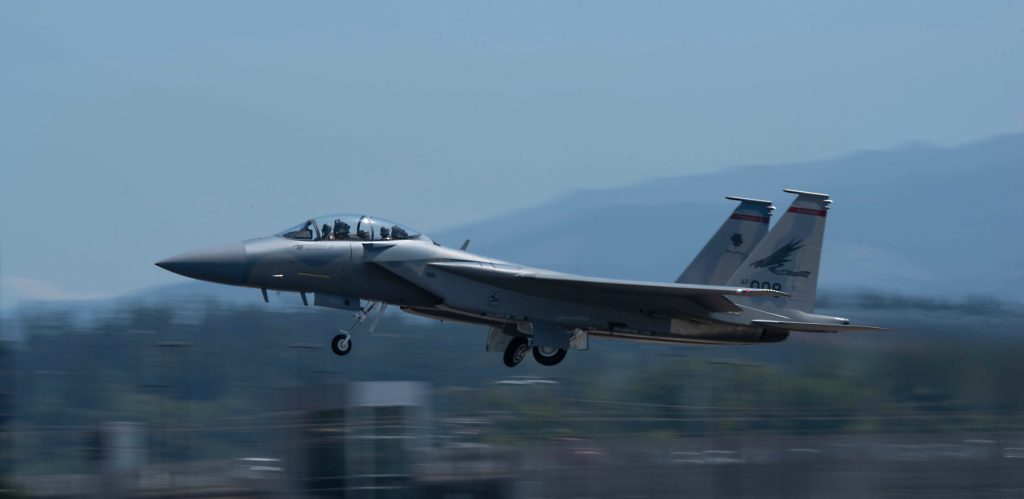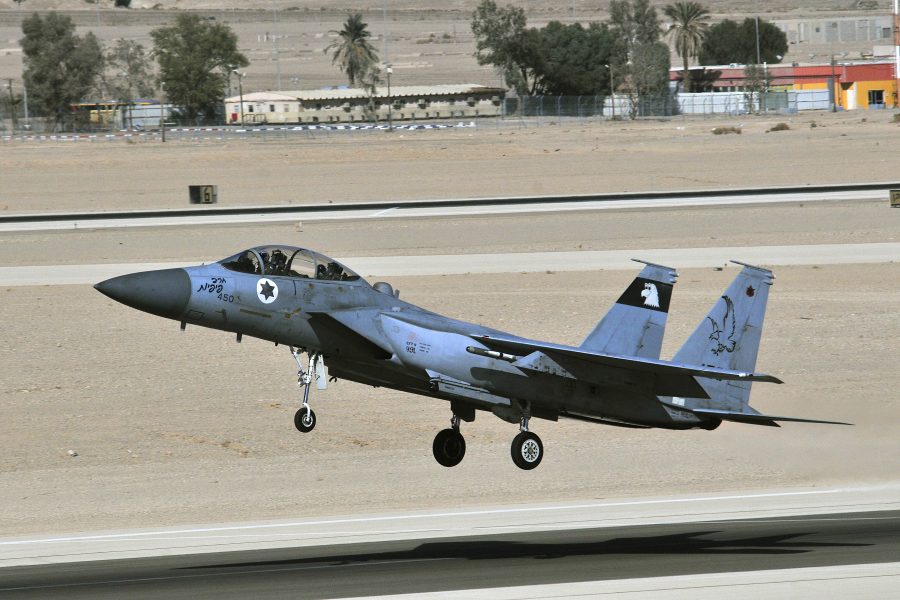The State Department approved a raft of foreign military sales to Israel on Aug. 13, including an $18 billion deal for up to 50 new F-15 fighters and upgrades to 25 existing F-15I models, plus engines, radars, and other equipment.
The deal requires congressional approval, and would provide F-15IA aircraft, similar to the U.S. Air Force’s F-15EX Eagle II, the most advanced version of the F-15. Under the agreement, Israel would buy 25 of the fighters, with options for 25 more, according to reports.
In addition, Israel is seeking “mid-life update modification kits” for its F-15I aircraft, creating an F-15I+ program. Israel would also acquire 120 F110-GE-129 engines, 75 APG-82(V)1 active electronically scanned array radars, and other equipment, with a total estimated value of $18.82 billion.
“Incorporating F-15IAs into the Israel Air Force’s fleet of fighter aircraft will enhance Israel’s interoperability with U.S. systems and bolster Israel’s aerial capabilities to meet current and future enemy threats, strengthen its homeland defense, and serve as a deterrent to regional threats,” the State Department’s Defense Security Cooperation Agency said in a release. “Israel will have no difficulty absorbing these articles and services into its armed forces.”
“The proposed sale of this equipment and support will not alter the basic military balance in the region,” the release stated.
Israel has been eyeing a variant of the F-15EX since 2018, though a formal request to the U.S. did not come until 2023. The Israeli Air Force also wants to buy more F-35Is, its variant of the F-35.

In addition to the F-15s, the State Department also approved the sale of up to 30 Advanced Medium Range Air-to-Air Missiles (AMRAAMs) to Israel, at the cost of $102.5 million.
“AMRAAMs are a key aerial combat capability used to defend against airborne threats, such as the missile and drone salvo launched at Israel on April 14,” the State Department release notes. “The proposed sale will improve Israel’s capability to meet current and future enemy threats, strengthen its homeland defense, and serve as a deterrent to regional threats.”
During the April attack, Iran launched more than 100 ballistic missiles, 30 land-attack cruise missiles, and 150 drones against Israel. Israeli ground-based missile defense systems, F-15s, and F-35s all helped intercept some of those threats, and the U.S. and other allies intervened as well, with American F-15Es and F-16s in particular downing some 70 Iranian drones.
The State Department’s approval of the sales comes as Israel and its allies await another potential attack by Iran in retaliation for the killing of Hamas leader Ismail Haniyeh. The White House has said a wave of missiles and drones could come as soon as this week, warning that it is preparing for a “significant” attack.
